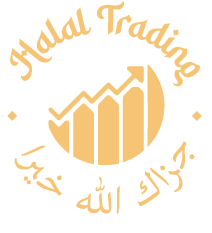Contracts for Difference, or CFD: “an agreement between two parties, namely the “buyer” and the “seller”, and the value of this agreement or contract is based on the underlying asset. At the end of the contract, or when the contracting parties decide to close the deal: The seller pays the difference between the current price of the asset, and its price when it was opened to the buyer, if the value of the basic asset had increased, and on the contrary, if the value of the asset had decreased, and the difference between the current price and the initial price was negative, then the buyer pays the difference for the seller.
In CFDs, the trader is betting on the price moving up or down. A trader who expects an upward movement in the price will buy the contract, while a trader who sees an opposite downward movement of the price will go to sell a position. The net difference between the purchase price and the selling price will be summed up together. The net difference representing the profit or loss from trades is settled through the investor’s brokerage account.
How CFDs work?
CFDs or Contracts for Difference is a widely used form of financial trading in the Islamic world. This procedure allows you to anticipate that the price of financial assets will rise or fall. You can trade through CFDs on commodities, currency pairs, stocks, indices, and more.
By trading CFDs, you do not deal directly with the asset, whether is stocks, currencies, etc., but only trade on its underlying price. By trading, you need to predict whether the price of a financial asset will move up or down.
Contracts for Difference (CFDs) are leveraged financial products. This means that you only need to pay a small part of the total transaction to open a position in the market. This differs from other forms of trading because it allows you to trade on ‘margins’. By trading this way, you can get faster returns. But at the same time, losses will be magnified if prices fall. In CFDs, profits and losses depend on the full value of your trade.
CFD trading is popular among investors as it allows them to control their portfolios with more flexibility. When you open a trading account and use CFDs, you can set a fixed amount to trade. This amount will rise with each pip as the market moves up. In CFDs, if the investor thinks the stock price will go up, he has to click the buy button to secure the stock.
Example of CFDs: Instead of buying 1,000 Tesla stock (example) from a stockbroker, you can buy 10 Tesla contracts through a broker that offers a CFD trading platform. When Tesla stock goes up to $5, you’ll get $5,000, just as if you bought the actual stock that is publicly traded.
Are CFDs Halal or Haram in Islam?
If the forex trading system includes leverage or margin, it is forbidden; Because of the combination of loan and brokerage. If it includes the margin and the overnight fees, then it is more deserving of the prohibition. For its combination of loans, brokerage, and interest-based loans.
Trading CFDs is Haram in Islam and the reason behind this is very simple. Basically, in CFDs, the trader does not own any type of product or assets. He predicts whether the basic price of that financial asset will rise or fall without actually owning the asset.
That is, you buy and sell what you do not own, with the aim of the sale taking place before borrowing, as if the financial broker sells shares on behalf of the client, and deposits the outcome of the sale into his account without the client owning these assets.
There is no problem in exchanging one financial asset for another if it is not of the same type and the profit obtained from it is Halal. But granting the broker credit for the client’s capital (Leverage) if it is for lending to the client, which entails obtaining profit, then is considered Haram in Islam.
CFDs are Haram in Islam because the trader does not own the asset for the financial transaction. Because CFDs are an agreement between a financial broker and a trader on the rise or fall of the price of a financial asset, Islamic Sharia considers this gambling illegal.
CFDs in Islam
The first reason why CFDs are Haram (forbidden) in Islam or can be said to be doubtful, is that the amount provided by the brokerage company (financial intermediary) to the investor to execute the direct order to buy the financial asset is considered as a (loan).
Therefore, the financial broker forces the trader to trade the forex or other financial assets through a trading platform offered by that broker, thus the trader gets the margin amount that is above the base amount to be able to trade. If the trader is unable to close his position during the trading day because he has not been able to reach his goal of making the required profit, the financial broker forces him to pay interest on the amount that has been borrowed. Here, CFDs appear as one of the transactions that are Haram in Islam if they are worked in this way.
It is worth mentioning… The broker asks the trader to keep more capital in his account. The reason for this is that if the trader suffers a loss, the broker will ask him to deposit more money if he wants to keep his position open. And if the trader does not deposit these funds to keep the position open, the broker will close the position and thus result in a loss on this position and this is called (margin call).
Is CFDs Haram?
According to Islamic Sharia principles, contracts for difference or CFDs are Haram in Islam, and the main reason for this is how the interest from the Broker is imposed on the trader.
This interest is called (Riba) in Islam, and Riba is Haram by the Islamic Sharia. Also, the trader cannot withdraw his money easily without the approval of the broker and this is also considered as Haram because there should not be any difficulties in withdrawing your money (profits) that you have worked so hard to get.
Also, risking a large amount of capital, especially for novice traders, is Haram by Sharia.
CFDs are Haram in Islam because the brokerage company also withholds the amount that the trader deposits with it until it recovers the loan that the trader took from it. Thus, when a trader suffers a loss, the company takes the amount directly from his account.
Islam stipulated that this type of trading takes place without any interest being collected from the trader. Therefore, it is permissible to work with the brokerage company/financial intermediary who is not required to take interest from the trader.
Is CFD Haram or Halal?
In a CFD, the trader is not the actual owner of the financial asset, nor does he receive any assets or services for the amount he deposits. He may win a lot of money or he may suffer losses that lead to the loss of his initial capital, due to the difference in the value of the financial asset between the time of opening and closing the CFD contract.
Thus, CFDs are the process of exchanging a smaller amount of money for a larger amount, and such exchange is not permitted in Sharia and is considered (Haram) in Islam because it falls within the scope of Riba (interest). The same principle (gambling) is when two people agree that whoever loses the bet will pay the other a certain amount.
Also, daily interest (Riba) is applied to the opening of CFDs by many brokers.
What is the solution offered by Islam to use CFDs?
Since Islam forbids taking Riba (interest) during commercial transactions between the transacting parties, Sharia and jurists have suggested that traders use interest-free trading accounts while trading in CFDs. They are the so-called (Islamic trading accounts).
A broker that offers Islamic trading accounts, does not require any kind of interest on this account while trading CFDs. That is, you are trading without any interest. So, make sure to choose the trusted broker that offers an interest-free Islamic trading account.
Inshallah, we will introduce you to brokers that offer verified Islamic trading accounts through us.
Through our Halal Trading Brokers website, we will help you to identify the best halal brokers around the world and not only in the Middle East region. We will guide you to trade in the financial markets and in any financial asset you desire without any (Riba Interest) through brokers whose accounts and transactions have been verified by us.
What is Riba-Free Islamic Account?
An Islamic trading account is an interest-free account in which you do not pay or receive any kind of commission. The broker will not deduct any funds from your account balance in exchange for keeping trades open overnight. Therefore, the results of your trades will appear during a specific period, which is the time of the actual trading sessions during the day.
If you want to trade according to the principles of Islamic Sharia… and don’t know where to start….
Leave your contact details below and Halal trusted broker ToTradeGlobal.com will contact you soon.
Millions of Muslims trade through CFDs using interest-free (riba) Islamic trading accounts. We are here to help you choose the best Islamic trading accounts, in addition to providing any kind of financial advice so that you can grow your investment portfolio in this rapidly evolving financial market.




